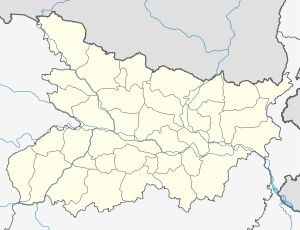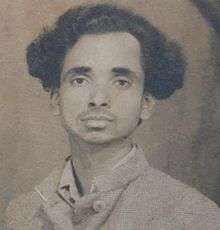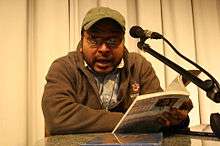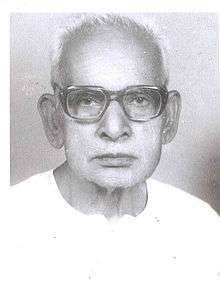Motihari
| Motihari | |
|---|---|
| City | |
| Nickname(s): Lake city | |
 Motihari Location in Bihar, India | |
| Coordinates: 26°39′00″N 84°55′00″E / 26.65000°N 84.91667°ECoordinates: 26°39′00″N 84°55′00″E / 26.65000°N 84.91667°E | |
| Country |
|
| State | Bihar |
| District | East Champaran |
| Ward(s) | 40 |
| Government | |
| • Type | Mayor–Council |
| • Body | Mayor-Council |
| Area | |
| • Total | 122 km2 (47 sq mi) |
| Area rank | 04 |
| Elevation | 62 m (203 ft) |
| Population (2011[1]) | |
| • Total | 124,000 |
| • Density | 1,000/km2 (2,600/sq mi) |
| Languages | |
| • Official | Hindi, Urdu, English |
| Time zone | UTC+5:30 (IST) |
| PIN | 845401,845435,845437 |
| Telephone code | 06252 |
| ISO 3166 code | IN-BR |
| Vehicle registration | BR-05 |
| Lok Sabha constituency | Purvi Champaran |
| Vidhan Sabha constituency | Motihari |
| Website |
eastchamparan |
Motihari is the headquarters of East Champaran district in the Indian state of Bihar. It is located 150 km north of the state capital Patna.
Geography
Motihari is around 165 km northwest from Patna, the capital of Bihar, 45 km from Bettiah, and 72 km from Muzaffarpur 40 kilometres' distance from Mehsi 30 kilometres' distance from Chakia. The city is close to Nepal. Birgunj, is 55 km away.
Panoramic Motihari
The topography of Motihari is wonderful scenic. The Motijheel Lake of stunning beauty (in classical terms) divides the town in two halves.[2]
In Gangan Lit-Mag (Gangway Literary Magazine), Austria, wrote Anant Kumar: "The playgrounds of my childhood were the streets of Motihari. Back then that little East Indian town was not overpopulated, and the dry, clean streets of every part of town were ideal for our games: marbles, tops, badminton. And back then Motihari was a wide distance away from the big world. There were very many mango and lichee trees, fragrant lemon bushes, broad, large fields…and very few people. There were scattered decrepit hawelis and bungalows, in which frightening bhuts, geniis and juraels dwelled."[3]
The Gandhi Sangrahalaya has a wide collection of relics and photographs of the Champaran Satyagraha. The Gandhian Memorial Pillar was designed by Nand Lal Bose, a famous artist of Shantiniketan.
The foundation stone of the pillar was laid on 10th June 1972 by the then Governor, D. K. Barooch. It is a 48 ft tall stone pillar and is situated at the same site where Mahatma Gandhi was presented in court.
Demographics
As of 2011 India census,[4] and As per provisional reports of Census India, the population of Motihari in 2011 was 125,183; of which male and female are 67,438 and 57,745, respectively. The sex ratio of Motihari city is 856 per 1,000 males.
Total literates in Motihari city are 94,926 of which 52,904 are males while 42,022 are females. The average literacy rate is 87.20 per cent of which male and female literacy was 90.36 and 83.52 per cent.
The children aged 0–6 in Motihari city are 16,325, as per the Census India report, in 2011. There were 8,891 boys and 7,434 are girls. The child sex ratio of girls is 836 per 1,000 boys.
Climate
Climate is characterised by high temperatures and evenly distributed precipitation throughout the year. The Köppen Climate Classification sub-type for this climate is "Cfa" (Humid Subtropical Climate).
| Climate data for Motihari | |||||||||||||
|---|---|---|---|---|---|---|---|---|---|---|---|---|---|
| Month | Jan | Feb | Mar | Apr | May | Jun | Jul | Aug | Sep | Oct | Nov | Dec | Year |
| Average high °C (°F) | 22 (72) |
26 (78) |
31 (88) |
34 (93) |
36 (96) |
34 (93) |
32 (90) |
32 (90) |
32 (89) |
30 (86) |
27 (80) |
23 (74) |
30 (86) |
| Average low °C (°F) | 8 (47) |
11 (51) |
15 (59) |
21 (69) |
24 (75) |
26 (79) |
26 (79) |
26 (79) |
25 (77) |
21 (69) |
13 (56) |
9 (48) |
19 (66) |
| Average precipitation mm (inches) | 23 (0.9) |
10 (0.4) |
30 (1) |
43 (1.7) |
71 (2.8) |
201 (7.9) |
437 (17.2) |
280 (11) |
250 (10) |
100 (4) |
5 (0.2) |
0 (0) |
1,450 (57) |
| Source: Weatherbase[5] | |||||||||||||
Connectivity
Motihari is connected to different cities of India through Railways and Roadways. Direct trains are available to New Delhi, Mumbai, Jammu, Kolkata, and Guwahati. 'Asian Highway 42 National Highway 28A 'and 'State Highway 54' passes through the city.
Notable people
George Orwell, author of Animal Farm and Nineteen Eighty-Four, was born in Motihari in 1903. His father, Richard Walmesley Blair was a deputy posted in the opium department in Bihar. When he was one year old, George left for England with his mother and sister. Until recently, the town of Motihari was largely unaware of its connection with Orwell. In 2003, Motihari discovered its role in Orwell's life when a number of journalists arrived in the town for Orwell's hundredth birthday. Local officials are making plans for the construction of a museum on Orwell's life.[6][7][8] The museum plans remain in abeyance in 2014.[9]
Khan Bahadur Azizul Huq was one of the two Indian police officers who worked with Edward Henry in the development of fingerprint classification, known as the Henry Classification System, died in Motihari in 1933. "It was Khan Bahadur Azizul Huq who evolved a mathematical formula to supplement Henry's idea of sorting slips in 1024 pigeon holes, based on fingerprint patterns. Rai Bahadur Hem Chandra Bose made further contribution to the fingerprint science by evolving an extended system of sub classification, a telegraphic code for finger impression and a system of single-digit classification."[10] Both Haque and Bose eventually received honoraria and recognition from the Government of India. At the time of final approval of the honorarium for Haque, the Home Department (Government of India) noted, "It appears from the information now received that he (Haque) was Sir Edward Henry's principal helper in perfecting the scheme and he actually himself devised the method of classification which is in universal use. He thus contributed most materially to a discovery which is of worldwide importance and has brought a great credit to the police of India."[11] Upon retirement from the Police service in Bengal and Bihar, Khan Bahadur Azizul Huq settled in Motihari, and he is buried there.
A.F.Salahuddin Ahmed, National Professor of Bangladesh, a grandson of Khan Bahadur Azizul Huq was born in Motihari in 1924. He was educated at Presidency University, Kolkata, University of Pennsylvania, and University of London, and taught at eminent universities in Bangladesh: Jagannath College, Rajshahi University, Jahangir Nagar University, Dhaka University, and Independent University, Bangladesh, and wrote many books and articles in professional journals and newspapers. In one of his books, Perspectives on History, Society and Politics, he argued that despite the political divisions that took place in South Asia in 1947, the people of this vast region belong to “one indivisible civilisation which is the product of over a thousand years of historical development” and that the destinies of the people inhabiting the subcontinent are closely interlinked. They must therefore learn to live together in peace, as this is essential for their development and progress.
The modern Hindi poet, author and freedom fighter Ramesh Chandra Jha belonged to Phulwariya village in Motihari.


Thakur Ramapati Singh was a freedom fighter, MLA. Minister, and MP from Motihari.
Anant Kumar (born September 28, 1969 in Katihar/Bihar), is a German author of Indian descent. He spent his childhood in Motihari where his father Rajendra Prasad was Professor of Psychology at Munshi Singh College. He resides in Kassel, Germany. Royal City Gotha (Free state Thueringia, Germany) honored Kumar as a Resident Writer in 2015.[12]Kumar worked 2016 as a fellow in the symposium for dramatic writing at Volturno, Italy. [13]
- Anuranjan Jha, journalist, TV anchor and social worker.
- Ravish Kumar, TV anchor and journalist, NDTV Delhi.
- Radha Mohan Singh, Union Minister Agriculture
- Vidyapati Jha, Educationist
References
- ↑ http://www.census2011.co.in/census/city/159-motihari.html
- ↑ https://books.google.de/books?id=EzPYdQo3vZgC&pg=PA374&lpg=PA374&dq=dhanauti+motijhil&source=bl&ots=AmxoT3RO-R&sig=bgVykruBqiZJ206LHWFJYEMnCuE&hl=de&sa=X&ved=0ahUKEwiFnd66u__UAhXQbVAKHYBDBoYQ6AEIKTAA#v=onepage&q=dhanauti%20motijhil&f=false
- ↑ http://www.gangan.com/lit-mag/36/index.shtml
- ↑ "Census of India 2001: Data from the 2001 Census, including cities, villages and towns (Provisional)". Census Commission of India. Archived from the original on 2004-06-16. Retrieved 2008-11-01.
- ↑ "Weatherbase.com". Weatherbase. 2013. Retrieved on 31 July 2013.
- ↑ "All’s not well with Orwell" by Debashis Bhattacharyya The Telegraph (Calcutta, India), 14 November 2004
- ↑ "Makeover for Orwell's India home" by Amarnath Tewary, BBC News (Motihari, Bihar), 1 August 2005
- ↑ "Big Brother can't be bothered " Times of India
- ↑ Haleem, Suhail (12 August 2014). "The Indian Animal Farm where Orwell was born". BBC. Retrieved 2014-08-12.
- ↑ Tewari RK, Ravikumar KV. History and development of forensic science in India. J. Postgrad Med 2000,46:303-308.
- ↑ Sodhi, GS, & Kaur, JK: The forgotten Indian pioneers of fingerprint science
- ↑ Anant Kumar ist Kurd-Laßwitz-Stipendiat 2015
- ↑ http://nids.eu/?p=582

